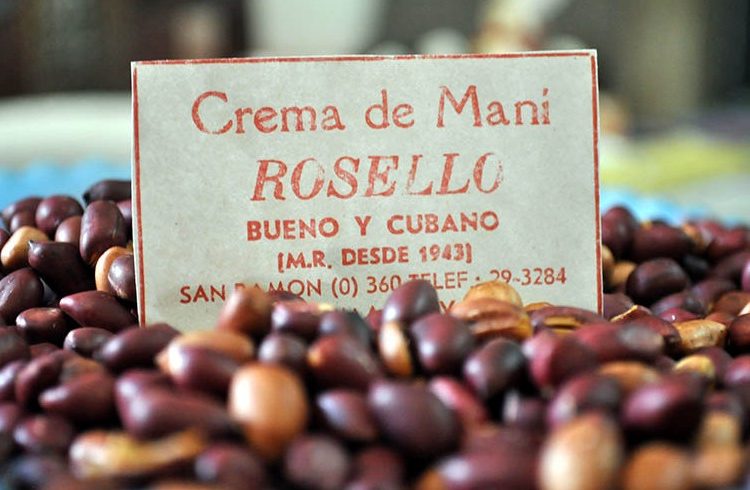In 1994 we marked 65 years of the first performance of The Manisero by Rita Montaner. Apparently, the air of celebration and the rumble of the melody in his ears, pushed Manuel Rosello to resume, that year, the making of a truly Camaguey food.
He lived at the same time as the singer, but in different situations: as Rita triumphed in Europe and the world danced to the beat of her rhythm, Manuel and hundreds of Cubans found in peanuts their only source of income.
By the early 1930’s, standing American companies in the country obtained high profits of the legume crop due to good prices for its butter during World War II. Thanks to this event peanuts became popular in Cuba, particularly the white variety, whose seed is composed of more than 40 percent of oils.
Filled with roasted salted peanuts, the paper cones toured throughout the island and became famous even in Paris, where ¨The Only¨ represented masterfully those vendors at the Olympia Theatre. On like them Moses Manuel Simons found inspiration to compose his catchy chorus.
First Rosello sold his cones on a bicycle. Then he sold nougat. After that, he went into sweets for Christmas. And finally, he introduced the Cream, of which no one knew its secret, but everyone queued to acquire it at any time.
He was nearly 30 years old, in 1943, when he decided to register his brand. He was interested in patenting a unique flavor, to improve his precarious economic situation. Orphaned as a child, he had worked as a servant, a store clerk, a sugar cane cutter at harvest time, a florist deliveryman. So making peanut derivatives was not a mere possibility in his life: either he did well or starved.
With the 1950s came advertising and critics. Magazines, newspapers, radio programs: they all spoke of a “concentrate, brimmed natural fat, highly nutritious, and the exact point of sugar.”
So, little by little he started entering the Camaguey homes. The Rosello brand remained intact even during the period of nationalizations. A letter from Che allowed the family to retain their business, since it “does not owe anything to the Cuban people.”
But in the late 1960s raw materials became scarce and for no farmer sowing the small tree, which has its flowers underground, was profitable anymore. The production became increasingly unstable, to the point of extinction.
It was not until the mid 1990s, when the harsh reality of the Special Period struck Cuban homes that Manuel decided to resume his business. His son Michael encouraged him and learned from his elderly father the secrets of a unique cream.
In 1994 the Cuban Office of Industrial Property –a signatory of the Madrid agreement, had Rosello as the only internationally registered trademark, owned by a Cuban, in the field of gastronomy. Since then Miguel has tried to get inserted in foreign markets to attract financing, but there are too many bureaucratic obstacles and he begins to feel the weight of life on his back.
But hope never dies in the Camagüey house, in the 360 San Ramon Oeste Street. There remains the sweet authenticity. Although the machines facilitate the grounding, the recipe remains the same and includes roasted with wood to ensure the smell and flavor, and it is hand shaped for better consistency.
Peanuts Rosello is undoubtedly the same as 70 years ago, the same as my grandfather tasted it and made me write this: “good and Cuban.”










